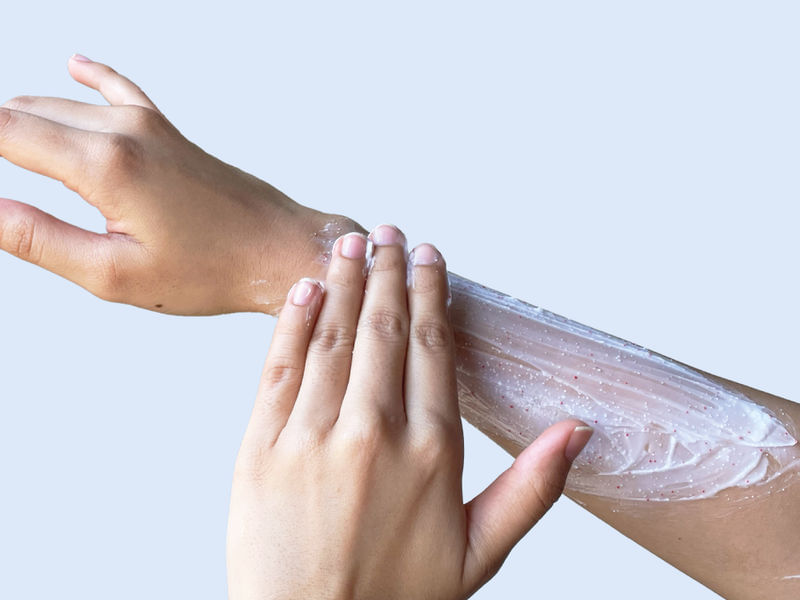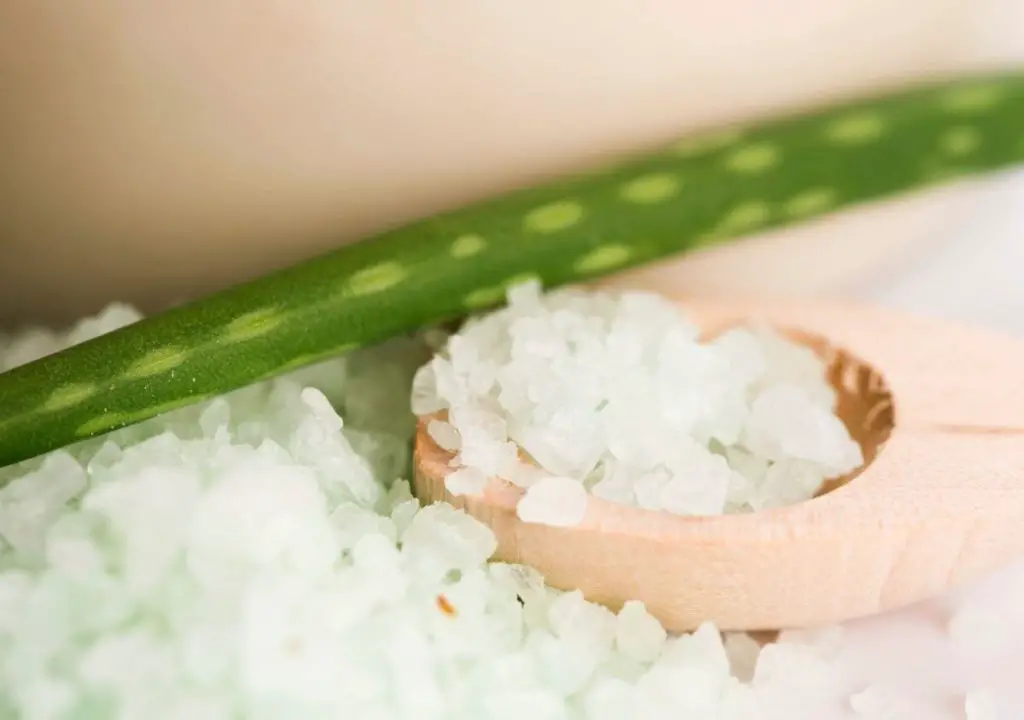Chemical Exfoliation in Body Wash Explained for Beauticians
For beauticians, understanding the intricacies of skincare products is crucial. One of the latest trends making waves in the industry is chemical exfoliation in body wash. This technique offers a modern twist on traditional exfoliation methods and promises to deliver smoother, healthier skin. But what exactly does it entail, and how can it be effectively utilized in a beauty regimen?
Chemical exfoliation involves the use of specific acids to remove dead skin cells from the body's surface. Unlike physical exfoliants, which use granules or beads, chemical exfoliants work by dissolving the bonds holding dead skin cells together. This method is embedded in various skincare products, including body washes, which aim to provide a gentle yet effective exfoliation experience.

Understanding the Basics of Chemical Exfoliation
At its core, chemical exfoliation offers an advanced way to enhance skincare routines. It relies on ingredients like alpha hydroxy acids (AHAs), beta hydroxy acids (BHAs), and enzymes to target and eliminate dead skin cells. These ingredients are often derived from natural sources, such as fruits and plants, making them both effective and environmentally friendly.
AHAs, such as glycolic acid and lactic acid, are water-soluble and ideal for dry or sun-damaged skin. They help in improving skin texture and tone. On the other hand, BHAs like salicylic acid are oil-soluble, making them perfect for oily or acne-prone skin as they can penetrate deep into the pores. Enzymes from fruits like papaya and pineapple offer a gentle exfoliation suitable for sensitive skin.
Benefits of Chemical Exfoliation in Body Wash
Incorporating chemical exfoliants into body wash products offers numerous advantages. Firstly, it provides a uniform exfoliation without the abrasiveness of physical scrubs. This reduces the risk of micro-tears and irritation, making it suitable for most skin types.
Moreover, using a body wash with chemical exfoliants can enhance product penetration, allowing other active ingredients in skincare products to work more effectively. This can be particularly beneficial for beauticians looking to optimize the results of treatments they provide to their clients.
Additionally, chemical exfoliation can help with various skin concerns, such as hyperpigmentation, uneven skin tone, and acne. By promoting cell turnover, it aids in revealing fresh, radiant skin, which is a desired outcome for many clients.
How to Use Chemical Exfoliating Body Wash
For those new to chemical exfoliation, it's important to understand the correct usage to avoid any potential side effects. Beauticians should advise their clients to start with a patch test, especially if they have sensitive skin or are prone to allergies.
It's recommended to use chemical exfoliating body wash 2-3 times a week, depending on the skin type. Over-exfoliation can lead to dryness and sensitivity, so it's essential to monitor the skin's response. Pairing the body wash with a hydrating moisturizer can help maintain the skin's moisture balance.
Clients should be educated on the importance of using sunscreen after chemical exfoliation, as the process can make the skin more sensitive to UV rays. A broad-spectrum SPF is ideal to protect newly-exfoliated skin from sun damage.
Choosing the Right Chemical Exfoliating Body Wash
When selecting a chemical exfoliating body wash, beauticians should consider the client's skin type and concerns. For dry skin, an AHA-based body wash may be more suitable, while those with oily or acne-prone skin might benefit from a BHA-infused product.
Additionally, looking for body washes with added skin-soothing ingredients like aloe vera, chamomile, or green tea can help mitigate any potential irritation. It's also wise to choose products free from parabens, sulfates, and artificial fragrances to minimize the risk of adverse reactions.
For a deeper understanding of how to integrate chemical exfoliation into your beauty practice, you can check out this Healthline article that outlines the benefits of body scrubs.
Integrating Chemical Exfoliation into Professional Treatments
Beauticians can leverage chemical exfoliation in body wash not only for retail but also as part of their professional treatments. Offering services that incorporate these products can provide clients with a luxurious and effective skincare experience.
For instance, a treatment could begin with a gentle chemical exfoliation using a body wash, followed by a hydrating body mask and massage. This not only enhances the clients immediate results but also promotes long-term skin health. For more insights on the benefits of exfoliating body washes, visit this Livanatural blog.
Conclusion
As the beauty industry continues to evolve, staying informed about the latest trends and products is essential for beauticians. Chemical exfoliation in body wash offers a modern approach to skincare, providing numerous benefits for a variety of skin types and concerns.
By understanding the science behind these products and how to effectively incorporate them into treatments, beauticians can enhance their service offerings and ensure optimal results for their clients. For more on the timing of exfoliating body wash use, you can read this useful article.

Frequently Asked Questions
What is the main benefit of using a chemical exfoliating body wash?
The primary benefit is achieving a smooth, radiant skin appearance without the harshness of physical exfoliants. Chemical exfoliants work by dissolving dead skin cells, promoting a healthier skin surface.
Can all skin types use chemical exfoliating body washes?
Yes, but it's important to choose the right product for your skin type. Those with sensitive skin should opt for milder formulations and perform a patch test before full application.
How often should a chemical exfoliating body wash be used?
For most skin types, using the body wash 2-3 times a week is sufficient. However, this may vary based on individual skin concerns and sensitivity levels.
This article contains affiliate links. We may earn a commission at no extra cost to you.

